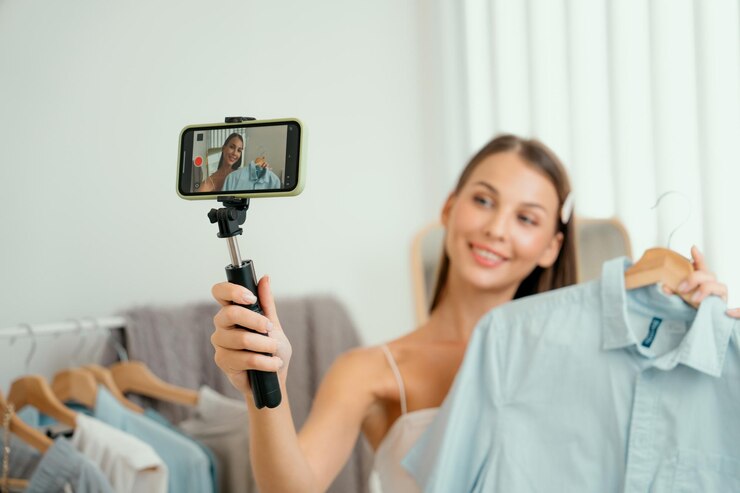To this day, influencers could make their community buy any products at any time. According to a study by Kantar in 2020, conducted by Marketing Dive, more than one-fourth of the population has bought a product solely based on the recommendation of one influencer. This rate goes up to 44% with Gen Z.
But their influence seems to be threatened lately. Their followers are now more conscious about the influencers’ marketing strategy and their need to promote every single product sold by a brand that paid them to do so.
This is why more and more people are starting to feel sort of betrayed by their favourite influencers and are seeing them as dishonest. On TikTok, videos of young people criticising influencers and brands are multiplying. Gen Z rejecting this type of marketing is a real menace for brands that mainly targeted Gen Z as potential clients to be influenced.
A New Trend on TikTok: Deinfluencing
Recently, a new trend has appeared on TikTok: “deinfluencing things you do not need.” This trend aims to reveal the truth about the products influencers get them to buy. They urge “socionauts” to think carefully about their purchases and save their money. The aim of this? To avoid buying products that are overhyped. In a video, a TikToker by the name of MichelleKidelsky, a former compulsive shopper, lists the useless products that influencers recommend having: Apple AirPods Max, 25 different perfumes, Ugg slippers, a multitude of beauty treatments…
Her video has been viewed thousands of times. In the comments, some internet users give cheaper alternatives, while others make their “mea culpa” and admit to unnecessary purchases. And this is just one video among many. Some people even go so far as to buy products recommended by influencers, only to criticise them unfiltered. For Kahlea Nicole Wade, brand collaboration coach and content creator, deinfluencing is a Generation Z rebellion movement. “
This movement is helping people, in particular, Generation Z, to take back their power,” she tells Today media. Recent scandals involving a number of influencers have certainly had a hand in the rise of deinfluencing. Like “Mascara Gate”, which involved Mikayla Nogueira, an influencer accused of wearing false eyelashes while extolling the virtues of an eyelash-enhancing mascara from L’Oréal.
Authenticity or Opportunism?
That is the question that consumers ask themselves when they see their favourite influencers making yet another sponsored collaboration. The heart of influencer marketing lies in trust. Consumers follow influencers because they appreciate their personality, expertise, or style. But this trust can falter when the products promoted seem at odds with the influencer’s identity. Consumers aren’t fooled.
They know that behind every sponsored post lies a remuneration. What was initially perceived as a genuine partnership between a brand and a content creator begins to resemble a simple commercial transaction. This perception of opportunism can erode the credibility of influencers and, consequently, diminish the effectiveness of marketing campaigns.
Consumers Gaining Free Will
Free will seems to be at the heart of these questions. By criticising influencers for encouraging their followers to over-consume, these “deinfluencers” are also telling them what they can and cannot do.
A way of influencing them too. For critics of this new trend on TikTok, not all messages are necessarily aimed at reducing consumption. Influencers criticise products that have been overhyped and invite their followers to buy cheaper ones. Could “deinfluencing” be a new form of influence that considers the current concerns of internet users, such as inflation, sustainability, and ecology, to win or keep their trust?
A Return to Spontaneity?
Faced with this saturation, some influencers have become aware of the danger of losing touch with their audience. Increasingly, we’re seeing a return to more spontaneous, less commercial content, where collaborations are carefully chosen. Influencers are seeking to prove that they are not only motivated by money but also by a genuine interest in the products they promote. Brands, for their part, are also reacting by modifying their strategies. Rather than multiplying sponsored partnerships, they are favouring long-term collaborations with influencers who genuinely share their values. These more authentic partnerships help to re-establish a degree of credibility and recreate a bond with consumers.
Towards a New Balance
Clearly, influencer marketing isn’t going away any time soon, but the industry is at a turning point. Consumers, more than ever, are looking for authenticity and transparency. Influencers and brands must therefore adjust their approaches to avoid losing credibility. For influencers, this means being more selective in their collaborations and not promoting anything and everything.







Comments are closed.